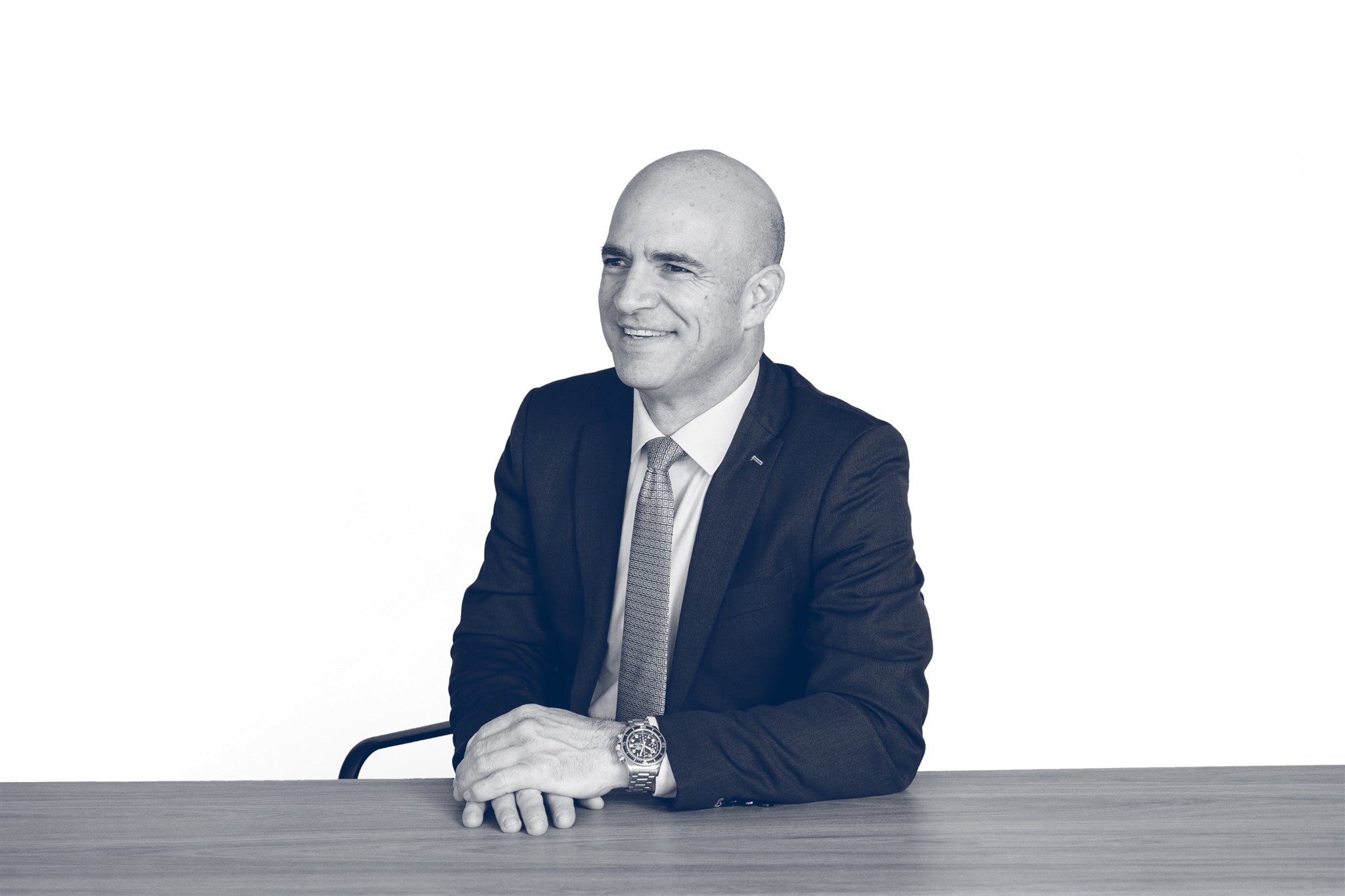How the intergenerational wealth transfer affects you (and how you can plan for it)
Few things in life cause more angst than estate planning and inheritances. The media is full of stories of family disputes over money or challenging probate experiences. But while you may want to bury your head in the sand on this one, thinking through estate planning is critical, regardless of your stage of life. It can also alleviate some of those disputes – and on a happier note, estate planning can equally be about what happens while you are alive.
The Productivity Commission estimates that $3.5 trillion will be passed on by baby boomers in the form of inheritances or financial gifts by 2050, a phenomenon also known as the intergenerational wealth transfer.
To put that in perspective, that’s over 70% of the total value of the Australian managed funds industry (as of the end of 2023).
It’s an extraordinary amount to consider and unsurprisingly, it’s getting some attention in the media – even if to just focus on the concept of the SKI philosophy (Spending the Kids' Inheritance).
We’re increasingly hearing from financial advisers that they are fielding questions on both sides of the equation – those who are considering how to manage their estate now, along with younger clients who have received an inheritance or a financial gift.
In light of this, I spoke to Sebastian Ferrando of Koda Capital and Trish Gregory from Fox & Hare about how they manage these discussions.
Starting with the basics of estate planning
Whatever stage of life you are at, a simple starting point for your estate planning would be the following:
- A view of what you want to happen to your assets or dependents after your death and a legally binding and witnessed Will that lays this out clearly.
- A Power of Attorney and Enduring Guardian to manage your affairs should you be incapacitated – to appoint these, you need signed legal documentation from all parties involved.
You can find details on getting started at MoneySmart. Don’t forget to update it regularly.
“Any major event at all, getting married, having a kid, getting divorced, major injuries, is a trigger to update your will and make sure your plan factors your family dynamics,” says Ferrando.
Another thing to remember is to check the beneficiaries you’ve nominated on your superannuation. Typically, your partner or spouse will receive your superannuation tax-free but any other beneficiaries (unless they are dependents) are likely to incur tax on this.
As Ferrando puts it, “There is an inheritance tax if you hold superannuation – that’s a taxable event to anyone other than your spouse or dependents - and your adult kids are not your dependents.”

The question of early financial gifts versus inheritance
For some, the option of passing on wealth early may be an option – and it’s one Ferrando encourages as it allows his clients to see their loved ones benefit.
“I approach this with my clients in a few ways. What can they live on comfortably with no impact on their living standards and is there excess money above that? Could some of that excess really make a difference to their child or loved one’s life right now as opposed to after they’ve died? Then I’ll encourage them to meet with a lawyer to discuss structure and options for early gifting,” says Ferrando.
He notes for some of his clients, it has been a great source of pleasure for them to watch their loved ones improve their lives using financial gifts, be it for support, buying property or other uses.
If it won’t make a material impact on their loved ones, his clients may continue to plan for it being an inheritance or start to consider how else they can use their money, such as for charitable bequests.
The concept of what the client can comfortably live on is critical to whether or not an inheritance or financial gift is possible.
Ferrando says he turns to a range of planning tools to help his clients assess what is possible so that they can feel more secure in their decisions on whether or not to make early financial gifts - spreadsheets are not enough as they can miss sequencing risk (aka the possibility that early withdrawal of funds can damage overall returns).
Gregory notes there are frequently cases where older Australians have deprived themselves of basic comforts and essentials in the hope of leaving their children inheritances or offering early financial gifts. She’s seen it occur where properties have been left as inheritance and were never upgraded or renovated to improve the quality of life of the elderly owner, despite there being funds available to do so.
“No one wants that. Their children certainly don’t want them suffering. There is no value in passing on money if it means you will have a poor quality of life,” says Gregory.
It’s essential to build a buffer into what you think you can comfortably live on. After all, inflation remains an ‘unwelcome guest’ and you can’t always anticipate other concerns, such as health problems in later life.

Structuring early gifts
Ferrando cautions that speaking to a lawyer about structuring a financial gift is a protective measure.
“There are two reasons you should do this. Firstly is to consider asset protection, do you want your gift to remain just in the hands of your loved one or are you happy for it to be shared between your loved one and their partner for example,” says Ferrando.
“The second thing is receiving advice on best practice and the rules and laws around giving money,” he adds.
Some of his clients have used a revocable trust to pass on money with a corporate trustee managing the funds, while others may choose to simply transfer the money or assets directly to their loved one depending on what they are comfortable with. There are a range of options available to consider.
How to manage receiving an inheritance or early financial gift
For those who have received an inheritance or an early financial gift, it can be easy to get caught up in the details and value, but Gregory recommends taking a step back.
“Start with what are your life goals and what are you trying to achieve.
Talk to an accountant to understand the tax implications of what you’ve received, for example, there are tax implications of selling an inherited property at different points in time.
Then figure out how you can use the assets to get you closer to your goals,” Gregory says.
The old wisdom around receiving money is typically to pay down debts, but Gregory notes it isn’t necessarily that simple.
For example, you should consider what type of debt it is and whether or not it is tax-deductible, whether it is related to an investment or whether it relates to consumer debt.
In the case of consumer debt, while clearing the debt can be a game changer for many, you need to take into account your approach generally to money and whether investing it instead might benefit you more.
“If I know from a behavioural perspective that they’ll just rack up consumer debt again, I might recommend locking up the lump sum in an investment that pays income to help them pay their debts and cut up their credit cards,” Gregory says as an example.
She also notes that inheritances can be assets like property instead and there can be an emotional side to managing this. Discussions for this might consider whether a client wants to live in an inherited property, renovate it, or hold it as a holiday home or rental.
When it comes to shares, part of the discussion might surround whether these investments match with existing portfolio strategy and goals. If they don’t, it might be a matter of working out the timing to sell these and reinvest in more appropriate investments.
Final words to consider
“Money is not going to make you happy. It’s not going to make your Instagram any better, but the one thing money does give you is choices. Maximise those choices and if you can pass on money early, do it because you can get a lot of pleasure out of watching your loved ones enjoy it,” says Ferrando.
“People underestimate how long it takes to save money and then underestimate how easy it is to spend hundreds of thousands of dollars. If you’ve received a gift or inheritance, really think about how you can use the money to make your future better,” says Gregory.
It's a lot to think about and can be emotionally fraught so consider expert advice when you do make your plans.
2 topics
1 contributor mentioned

